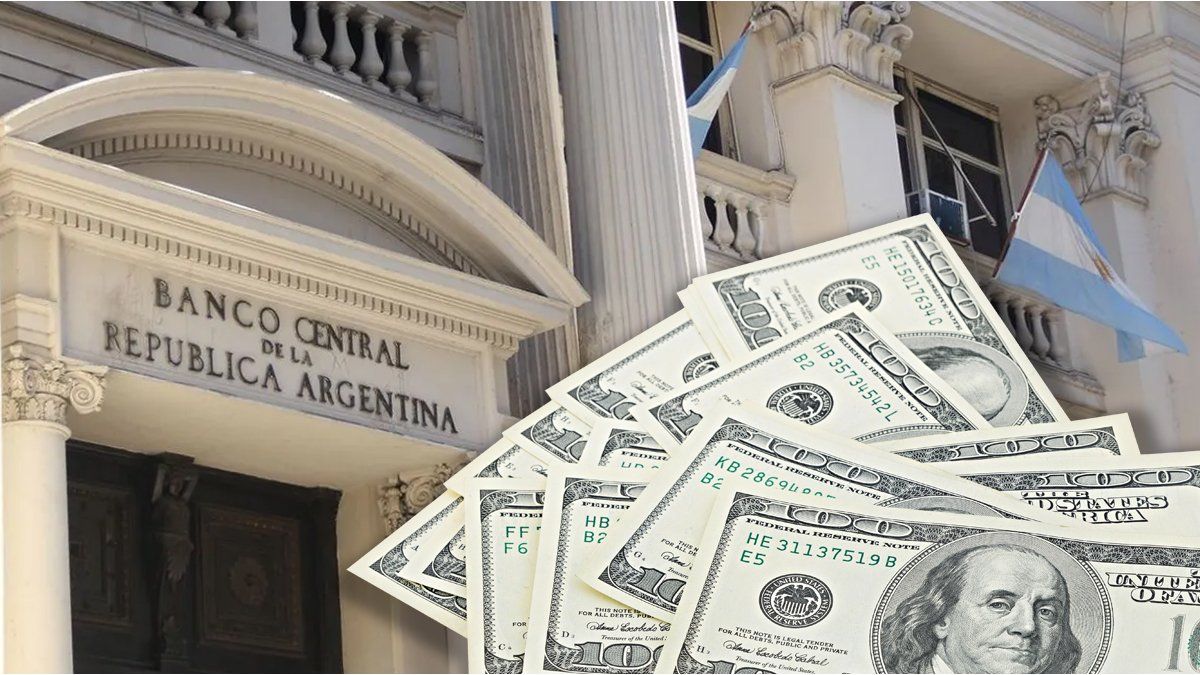The Government carried out the payment of large maturities for US$1.6 billion and, according to the calculations of some analysts, The net reserves of the Central Bank (BCRA) were again negative, at the start of a quarter with few prospects for foreign currency purchases by the monetary authority. In this context, various economists are beginning to warn about the challenges that Argentina will have to face maturities and restore the balance of the monetary regulator.
“Definitely The maturities coming up next year are a problem. What I see has changed in recent times is the concern about the exchange rate lag. That is what is becoming more complicated at the moment, beyond the fact that the third quarter is always complex in terms of foreign currency inflows,” he says. Ambit he economist and director of the consulting firm CyT, Camilo Tiscornia.
He also highlights that the Minister of Economy, Luis Caputo, put a lot of emphasis on the importance of recovering the reserves to lift the restrictions and that is not being possible today. That is why the economist Gustavo Ber He points out that “operators are increasingly focusing their attention on the exchange rate strategy in the face of the more complicated seasonal dynamics of reserves ahead.”
This indicates that expectations are growing for a new program with the IMF that could provide fresh funds, and thus speed up the process to at least gradually move towards an end to the restrictions, since this milestone is a crucial driver for continuing to normalize the economy.
The threat of a debt crisis
UBA economist Guido Lapafor his part, warned in radio statements that the country could be heading towards “a new debt crisis.” “Argentina is increasingly indebted and in 2025 there are very important due dates both with regard to the International Monetary Fund and even with private creditors,” he said.
The analyst said that the country “He has to raise a lot of dollars, and it is not clear where he will get them from.“And the fact is that, although imports have fallen significantly in recent times, due to the recession and the fact that many businessmen, taking advantage of the maneuvers that could be made with the previous government, overstocked, not many dollars are coming in from soybeans this year.
“In terms of exports, we don’t have the drought problem that we had last year, but that surplus trade balance, that is, those dollars that Argentina has left over from exporting more than it imports, are not enough,” he explained in radio statements. In addition, Lapa warned that “if consumption does not recover, it is difficult to imagine what will be the driving force that will bring about economic recovery.”
The lack of dollars and the need for an agreement with the IMF
“The underlying problem is that There are no dollars in the reserves and the banks know it. For this reason, the Government is looking everywhere (IMF, USA, European Central Bank, Qatari Arabs) and is not getting it either. In addition, the countryside and the International Monetary Fund (IMF) They ask him to devalue it to around $1800,” he points out, for his part, Ambit the Economist Fabian Medina.
The problem, as Lapa states, is that The Government’s economic policy discourages recoverybecause 70% of Argentina’s GDP is made up of consumption, which is the worst off of all factors, because the government’s policy has led to a dramatic fall in real wages. Lapa said that “if pensions fall, if wages fall, if the most sensitive social programs are cut, what we will see is a fall in consumption.”
Consequently, Economist Pablo Ferrari anticipates to this media that it will be the IMF that will define what comes next: “If the IMF dollars come in, it should disburse around US$10 billion to make a transition until investments arrive through the Large Investment Incentive Regime (RIGI) to Argentina.” Otherwise, he warns that there will be a devaluation, higher inflation and the governability of the current administration will be strained. For Ferrari, an agreement will finally be reached and the Fund will make the disbursement, although it is not clear what may happen next year.
He Director of CyT Economic Advisors, Camilo Tiscorniaanticipates that payments for 2025 are a problem and mentions that “what is most worrying is the perception of an exchange rate delay, added to the low inflow of dollars because exporters retain them thinking that there will be some kind of devaluation and indicates that the Government will have to modify this.” Likewise, he considers that “next year there should be a lower country risk that allows us to access the financing market and considers that the Government should review the exchange rate.
Source: Ambito
I am a 24-year-old writer and journalist who has been working in the news industry for the past two years. I write primarily about market news, so if you’re looking for insights into what’s going on in the stock market or economic indicators, you’ve come to the right place. I also dabble in writing articles on lifestyle trends and pop culture news.




